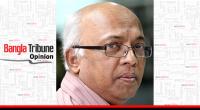 The legacy of colonialism, open markets under globalization and countries organized into united hierarchies on bullying leverages dictate the paradigm of our world order today. Adam Smith’s invisible hand runs deep into the pockets of resource-rich countries driven by western capitalist greed, legitimizing the resource curse
The legacy of colonialism, open markets under globalization and countries organized into united hierarchies on bullying leverages dictate the paradigm of our world order today. Adam Smith’s invisible hand runs deep into the pockets of resource-rich countries driven by western capitalist greed, legitimizing the resource curse
As Harford and Klein (2005) concluded, natural resource dependency damage institutions (including governance and the legal system) indirectly — by removing incentives to reform, improve infrastructure, or even establish a well-functioning tax bureaucracy — as well as directly — by provoking a fight to control resource rents. Easy resource revenues generate staggering wealth that facilitates corruption and patronage networks. These consolidate the power of entrenched elites and regime supporters, widening income inequality and stifling political reform. These characterized Bangladesh for decades of pre and post-independence trailing long-term consequences.
Located on top of the Indian Ocean ( which constitutes 25 percent of the world’s land, 40 percent of its oil and gas reserves, and a third of the global population) and being surrounded by the nuclear powers- - India, China and Pakistan, Bangladesh commands immense geopolitical significance. It is within the epicentre of the world's projected economic centre of gravity.
A country that has been blessed with a climate that allows year-round crop production and an abundance of biodiversity. It is one of the most densely populated countries in the world with the boon of one of the largest labour forces and largest consumer markets, on its way to becoming the world manufacturing hub.
Additionally, its significance as the third largest Muslim populous country has arguably played the biggest role in the external manipulation of the fate of Bangladesh through a history of propaganda.
1971
The Bengalis, the people of East Pakistan, rise up to the calling by Bangabandhu Sheikh Mujib on 7th March for the fight to our right to self-determination. The Muktibahini are armed and aligned. The East Pakistan Air Operations dominate the East Pakistan skies with Kilo flights and assistance from India grounding the Pakistan Air Force in occupied East Pakistan. While the Soviet Union hits the nail in the coffin to the Pakistan occupation by trailing the US Task Force 74 deployed to the Bay of Bengal by the Nixon administration. The 7th fleet’s return without firing a single shot proves to be a huge defeat for the US before China.
1973
A Cantonment tennis court for senior army officers starts to be frequented by junior officers, namely, Major Dalim and Major Noor, at the behest of Ziaur Rahman. Zia’s six-week US tour as Sheikh Mujib’s personal envoy establishes the links between Ziaur Rahman, Central Intelligence Agency (CIA), Pentagon’s Defence Intelligence Agency (DIA) and Pakistan’s Inter-Services Intelligence (ISI) that would lay the groundwork for the coup on 15 August, 1975. The “suitcase war game” manifests a plot to overthrow the Mujib government.
1975
“So what?” exclaims Zia, upon being informed of the murders of Bangabandhu and his family. His dinners and secret meetings with the CIA station chief Philip Cherry helped orchestrate the brutal killings. Even the Chief of Army Staff General Shafiullah was rendered powerless as a few junior officers mutiny under direct instructions from Washington.
“It was an act of mercy killing. Mujib was building a dynasty; we had to finish off all of them”, replies Farooq Rahman with a hint of pride when asked if 10-year old Russel had to be murdered in an interview in 1986 for the Indian magazine covered by Salil Tripathi (Bangladesh's Quest for Closure, 1 April 2010).
The surviving two daughters from Bangabandhu’s bloodline, including the incumbent prime minister, in Germany, were denied any support from the then-foreign minister Dr. Kamal Hossain for repatriation into Bangladesh.
It was the summer when citizens of the United States first heard elaborate details of assassination plots against Lumumba in the Congo, Castro in Cuba and Allende in Chile. The covert hand of American power had touched far and wide.
From 1975 to 1990, illegal military dictatorships, one coup toppling the other, house arrests, extra-judicial killings and assassinations dictated the leadership of Bangladesh.
The infamous jail killings and Col Taher murder continued Pakistan’s strategy of purging the nation of its intellectuals in cold blood.
"A military decree regarding the cancellation of the four pillars of the Constitution comes to me for signature ... ... I do not sign it, and keep it. ... I woke up in the sound of boots and footsteps at 11pm next day. The Chief of Army Staff Zia entered my bedroom with weapons in Bangabhaban. ... Ziaur Rahman lifted his legs with his boot on my bed and said, sign it. He carried a stick in one of his hands and a revolver in the other...”, reads Bangladesh`s first Chief Justice Abu Sadat Mohammad Sayem’s book “At Bangabhaban: Last Phase”.
War criminals are integrated into the political scene of an independent Bangladesh in a move towards Islamisation, backtracking on Bangladesh’s nine-month long bloody victory over the fundamental principles of secularism, socialism, democracy and nationalism.
Ziaur Rahman’s reorientation away from Bangabandhu’s secularism and socialism to vigorous Islamisation and opening up of the private sector, reformulate strategic ties with the US and the Arab world, actively alienating India and the Soviet Union, culminating in the shutdown of the Russian Cultural Centre in Bangladesh. The embargo from the Yom Kippur Arab defeat triples oil prices and the world’s nouveau riche Arabs begin to exercise their influence by financing missionary programs in various Muslim countries, facilitating state-sponsored Islamisation in Bangladesh.
1989
The US brand the Soviet invasion of Afghanistan against the Taliban a “holy war” appealing to foreign Muslim nationals as the US actively support the Taliban Mujahedeen. Approximately 3,000 people from all over the globe are motivated to travel in several different branches to fight in Afghanistan, including a delegation of ten self-proclaimed Ulama (Islamic scholars) from Bangladesh. These Afghan returnees with Taliban contacts subsequently form an extremist Islamist cell in Bangladesh. The 1990s saw a surge in militant Islamists in Bangladesh with the Cold War becoming history and the US becoming a global hegemonic power, against the backdrop of 9/11 as well as the US-led invasion of Iraq and Afghanistan.
1991
The Awami League takes the first initiative in the reintroduction of the parliamentary form of government through the Twelfth Amendment of the Constitution but loses the elections.
1996
The then-prime minister Khaleda Zia resigns under pressure and the Awami League wins by majority seat under the caretaker government headed by Justice Muhammad Habibur Rahman.
1996 - 2001
The Ganges Water Sharing Treaty (December 12, 1996), the Chittagong Hill Tracts Peace Accord (December 2, 1997),women empowerment initiatives, including establishing provision for direct election to the Union Parishad and other local government bodies, steps for poverty alleviation and eradication of illiteracy, social security measures for the aged, divorced women and the widows, monthly grant for the disadvantaged freedom fighters, measures for attaining self-sufficiency in food production are notable achievements under the Awami League government during this period.
Awami League’s defeat in the elections held on 1 October 2001 sees nearly 200,000 Hindus flee in post-election violence, church bombing kills nine, injuring 20 with religious minorities increasingly becoming mules for violent political expression.
The largest arms smuggling incident in Bangladesh, the 10-truck arms and ammunition haul bound for the ULFA in Assam epitomises the rise in fundamentalism between 2001 and 2006. On August 17, 2005, Bangladesh experiences its own 9/11 in a shockwave of terror with 500 bombs going off simultaneously. This is followed by the Jama’atul Mujahideen Bangladesh (JMB) attacks on October 3 and 8, and November 14 on Bangladesh’s judicial system with several suicide bomb attacks murdering four judges in their demand for establishing the “law of Allah”.
BNP leaves a generation with a blackout of its own history, a ban on “Joy Bangla”. Khaleda Zia’s silk saris disown our Bengaliness but provide safe pockets for investment in Saudi Arabia. It takes years into the Awami League administration before the Bangladeshi youth start to take more pride and ownership over their Bengaliness.
2007
The “Minus Two” (the plan to oust both the leaders) formula led by the army-backed government under the guise of the caretaker government proves too ambitious and it does not take long for their own robust military regime to falter.
2013
October sees the most violent prelude to the 2014 elections in the history of Bangladesh. Targeting minority groups, burning people alive, killing women, children and government officials in an attempt for BNP to come back to power “by any means” continues well into 2015.
First murders of secular bloggers by Islamic extremist group Ansarullah Bangla Team handcuffed the might of the pen.
Speaking at a rally on Sept 22, 2018, BNP Secretary General Mirza Fakhrul Islam Alamgir cited an instruction from the jailed party chief, Khaleda Zia, to launch a movement to oust the Awami League from power “at any cost”.
In the lead up to the elections of 2019, we have already witnessed the propaganda of the quota demonstrations, road safety demonstrations by students aligned overnight, Dr.Kamal Hossain’s party formation after a failed coup through disgraced Chief Justice Sinha and a surreptitious dinner with the US Ambassador Bernicat, just within the span of a few months.
There’s also reason to believe the Arakan Rohingya Islamic Front might have been incited from Islamabad leading to the August 2017 mass exodus of Rohingyas from Myanmar in a failed attempt to destabilise the Bangladesh government.
Bangladesh now has a chance to decide whether it is ready to emerge out of the spillage of propaganda coordinated from London, Washington, Islamabad, the Arab world and other beneficiaries of conflict within Bangladesh. Bangladesh can only continue its upward climb as the fastest growing economy to becoming poverty and hunger free, a secular Muslim majority country with fearless women leaders, guided by Bangabandhu’s vision of a “Shonar Bangla” that is pro-social-justice, pro-farmer, pro-poor development, economic freedom, zero unemployment and poverty free centric, if is allowed stability to continue to do so under the leadership of Prime Minister Sheikh Hasina.
Nadia Choudhury is a Barrister-at-Law and Political Economist


